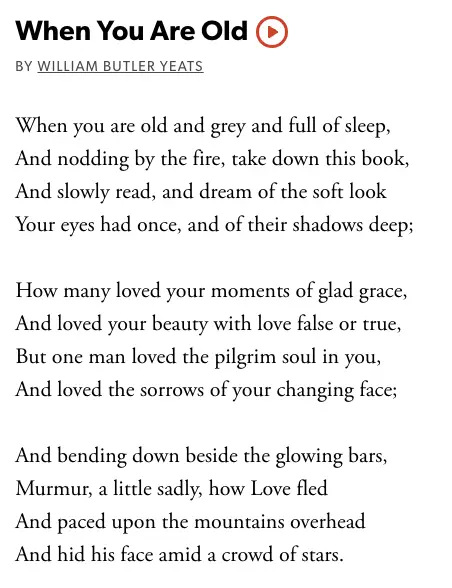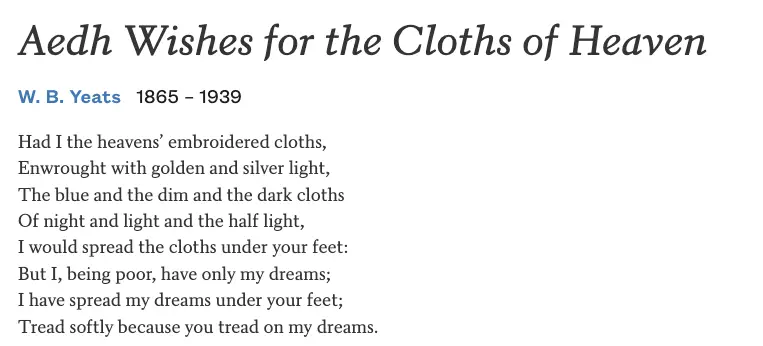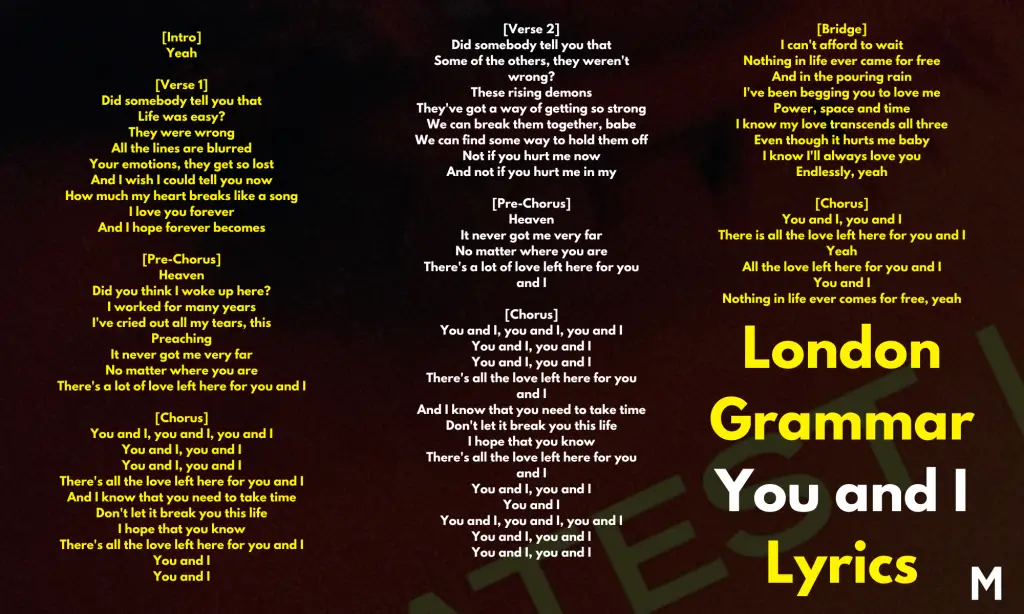Table of Contents
Photo Credit Ministry Of Sound / Sony
London Grammar, comprised of Hannah Reid, Dan Rothman, and Dominic “Dot” Major, has been carving out their unique sound in music since its formation in Nottingham in 2009. With albums like If You Wait and Californian Soil topping UK charts, their sound is a familiar refuge for those who digging a blend of ambient, ethereal vibes and gut-punching poignant lyrics.
As someone who’s spent more than a decade deeply entrenched in Old Romantic poetry thanks to my five-year stint as an English Lit major in college, the lyrics have always hit me on a deeper level, with their latest single “You and I” probably being the best example of this.
Snag Their New Collectors Album Vinyl Here 🔥 🔥 🔥
It’s a record that pulls at the heart with its grace, reminding me of the thematic motifs often explored by some of the same poets who have impacted my own career as a writer and creative. This isn’t about drawing direct lines from one poet to the band but more so recognizing how London Grammar’s lyrics echo those timeless themes of love, loss, and humanity. In this article, I will help draw some of these connections to not only show what London Grammar is talking about in this record but also showcase how some of the best writers in living memory have explored the same things in their work.
London Grammar You and I Lyrics:
London Grammar You and I Meaning:
Verse 1
The song opens with a blunt reality check: “Did somebody tell you that life was easy? They were wrong.” While it’s far from the strongest stanza in the song overall, it does set the tone, vibe, and momentum that we’ll be exploring and expanding upon later on.
This line immediately sets a tone of disillusionment (who which we’ll return to with a fresh perspective later on), challenging any naive expectations of life’s simplicity. The subsequent line, “All the lines are blurred,” suggests a world where moral and emotional clarity is difficult to find, reflecting a sense of confusion or loss that can be overwhelming. This imagery evokes a sense of disorientation, where emotions “get so lost,” underscoring the challenges of navigating life’s complexities.
The verse continues with a poignant expression of emotional pain: “I wish I could tell you now how much my heart breaks like a song.”
This simile parallels the speaker’s emotional turmoil, suggesting their pain is deep and hit differently. The line “I love you forever, and I hope forever becomes” introduces a sense of longing and hope for permanence in the relationship, even as the speaker acknowledges the fragility of such aspirations.
This longing can be seen as a search for a personal “Heaven”—an ideal state of peace and happiness that the speaker desires, yet acknowledges has been difficult to attain.
Snag Their New Album Vinyl Here 🔥 🔥 🔥
Pre-Chorus
In the pre-chorus, the speaker shifts focus to the perseverance required to maintain both love and life: “Did you think I woke up here? I worked for many years.” This line highlights the effort and endurance necessary to reach the present moment, implying that neither love nor life has come easily.
The phrase “I’ve cried out all my tears” suggests a history of emotional pain and struggle, reinforcing the theme of perseverance. This perseverance is not just physical or emotional but also deeply spiritual, as the speaker’s journey is marked by disillusionment with easy answers, symbolized by the line “Preaching, it never got me very far.”

The reference to “Heaven” in this context becomes more complex firstly through the word’s repetition, further emphasizing its poetic and rhetorical importance, and secondly through the imagery it paints—it’s not a physical destination easily reached through conventional wisdom or external teachings.
Instead, the speaker’s heaven is tied to love, a love that remains even after all the tears have been shed, which is the exact same sentiment expressed in William Butler Yeat’s Poem When You Are Old, which reflects on shared pasts and the enduring nature of true love. It’s a quick one, so I’ll include the screenshot to the right for a quick scan cause Yeats, apart from having a great first name, is almost my favorite writer of all time.
The phrase “there’s a lot of love left here for you and I” underscores the idea that love is a powerful, enduring force that offers solace and strength, even when other sources of comfort have failed.
Chorus
The chorus repeatedly emphasizes the connection between the speaker and their partner: “You and I, you and I.” This repetition reinforces the centrality of their relationship amidst the challenges they face. The line “There’s all the love left here for you and I” suggests that, despite the hardships, love remains a constant, a reservoir of support that both can draw from.
As the song progresses, the chorus develops the themes of healing and patience. The speaker’s acknowledgment that their partner “need[s] to take time” reflects a compassionate understanding of the healing process. This line conveys a sense of patience and empathy, suggesting that the speaker recognizes the importance of giving their partner space to navigate their own emotional journey. Allowing time for healing reinforces the idea that love is about enduring together and nurturing and supporting each other’s growth and recovery.
The chorus’s final repetition of “You and I” underscores the enduring nature of their bond, even as they navigate the uncertainties of life. It suggests that despite the rising demons and blurred lines, their love remains a stabilizing force, a personal heaven that offers respite from the world’s confusion.
Verse 2
In the second verse, the speaker continues to grapple with the challenges of life: “Did somebody tell you that some of the others, they weren’t wrong?” This line suggests that while some aspects of life are difficult, they are not insurmountable. The “rising demons” mentioned in the next line symbolize the increasing pressures and challenges that can overwhelm individuals, but the speaker offers hope: “We can break them together, babe.”
This verse introduces the idea of mutual support as a means of overcoming life’s difficulties. The speaker believes that together, they can “find some way to hold them off,” reinforcing the theme of love as a source of strength. The demons could also symbolize internal fears and doubts, which become stronger over time. The fact that the speaker chooses to face these challenges with their partner highlights the motif of love as a refuge—a place where even the most overwhelming fears can be confronted and subdued.
However, the line “Not if you hurt me now, and not if you hurt me in my” introduces a note of vulnerability, hinting at the potential for emotional harm within the relationship. This moment of vulnerability ties back to the theme of patience and healing, as it suggests that while love is strong, it is also delicate and requires care to avoid causing further pain.
Pre-Chorus (Reprise)
In the second pre-chorus, the repetition of lines from the first serves to underscore the themes of perseverance and the enduring power of love. When the speaker declares, “Heaven, it never got me very far,” it highlights a profound disillusionment with simplistic solutions or idealized notions of life. This line reinforces the idea that true comfort and peace—the speaker’s personal “Heaven”—aren’t found in superficial or external means but are deeply rooted in the strength of their relationship.
There’s a comforting reassurance in the affirmation, “there’s a lot of love left here for you and I.” Despite the challenges faced, love stands as a central, stabilizing force in the speaker’s life. This continued reference to Heaven, now enriched with an understanding of struggle and mutual support, suggests that love transcends mere emotional experience. Instead, it becomes a sacred, enduring bond that offers both healing and strength.

Drawing a subtle parallel to Yeats’ “Aedh Wishes for the Cloths of Heaven,” it’s evident that both the song and the poem celebrate the profound depth of love and human connection over any attachment to divine intervention or celestial ordning. Just as Yeats weaves his dreams into cloths to offer to his beloved, the song emphasizes that true peace and heaven are cultivated through meaningful and enduring connections rather than external idealizations. It’s another short one, so I’m going to include a picture of it as well, courtesy of my second favorite poetry site!
This perspective is consistently reinforced throughout the song, with each repetition adding layers to our understanding of love’s vital role in navigating life’s complexities. By anchoring the concept of Heaven in the depth of a genuine relationship, the lyrics convey that enduring love is the true source of solace and strength.
Thematic Exploration
The Struggles of Life
One of the primary themes of the song is the recognition that life is fraught with challenges and uncertainties. The opening line, “Did somebody tell you that life was easy? They were wrong,” sets the tone for this exploration. The blurred lines and lost emotions mentioned in the first verse suggest a world where clarity and stability are hard to come by, reflecting the disorientation and confusion that can accompany life’s hardships.
The repeated references to working hard, crying tears, and facing “rising demons” further emphasize the theme of struggle. The speaker’s acknowledgment that they have had to work for many years and shed many tears highlights the perseverance required to navigate life’s difficulties.
The Power of Love
Despite the challenges presented in the song, love emerges as a central, enduring force. The repeated assertion that “there’s a lot of love left here for you and I” underscores the idea that love provides a source of strength and solace amidst the trials of life. The speaker’s willingness to continue loving, despite the pain and struggle they have endured, suggests that love is a powerful, sustaining force.
This theme is reinforced by the speaker’s compassionate understanding of their partner’s need for time to heal. The recognition that love requires patience and empathy adds depth to the portrayal of love as more than just a source of comfort—it is also a source of growth and healing.
Vulnerability and Emotional Conflict
The song also explores the theme of vulnerability, particularly in the context of love. The speaker’s acknowledgment that their “heart breaks like a song” and their plea for their partner not to “hurt me now” introduce a note of emotional fragility. This vulnerability is further emphasized by the mention of the “rising demons” that the speaker and their partner must confront together.
The tension between the desire for love and the fear of emotional pain is a central conflict in the song. The speaker’s willingness to continue loving, despite the potential for hurt, reflects the complex nature of love as both a source of strength and a source of vulnerability.
Conclusion
The lyrics of this song offer a nuanced exploration of the complexities of life, love, and emotional endurance. Through vivid imagery and emotive language, the song conveys the challenges of navigating a world where clarity is elusive, and emotional pain is ever-present. However, despite these challenges, the song ultimately affirms the enduring power of love as a source of strength, solace, and growth.
In my opinion, the song serves as a powerful reminder that while life may be difficult, love provides a constant, stabilizing force that can help individuals navigate even the most challenging circumstances. The repetition of key phrases and the exploration of themes such as vulnerability, emotional conflict, and mutual support add depth and richness to the song, making it a poignant reflection on the nature of love and life.
Snag Their New Album Vinyl Here 🔥 🔥 🔥
The post London Grammar You and I Lyrics And Meaning: Timeless Truth Newly Saught, Said And Sung appeared first on Magnetic Magazine.






